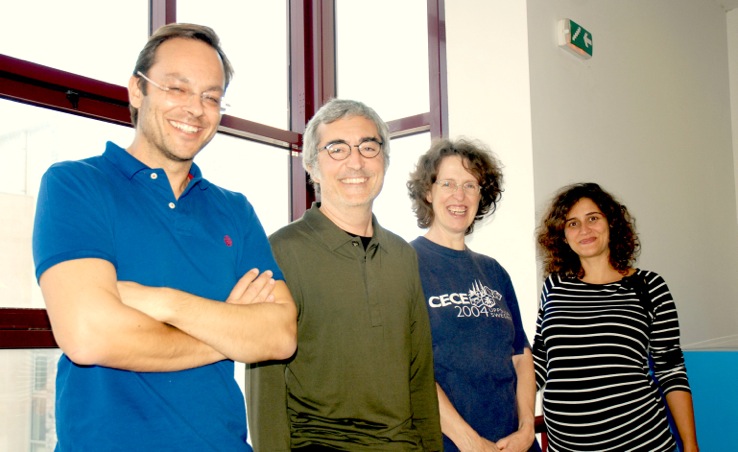FCT-funded research is springboard for Gates Foundation Grant

The Institute of Hygiene and Tropical Medicine (IHMT) is one of the winners of the latest round of Grand Challenges Exploration Grants, awarded by the Bill & Melinda Gates Foundation. Led by Henrique Silveira, in collaboration with researchers at the Centre for Marine Sciences (CCMAR), the teams will use the just over €90,000 funding to develop an alternative to blood meals for the malaria-carrying mosquito, Anopheles gambiae. This will make breeding these mosquitoes in the laboratory, for disease control or research purposes, much less dependent on the availability of human or animal blood, and thus more effective and safer.
The Anopheles mosquito acts as a vector, carrying the malaria-causing parasite, Plasmodium, from one human (or animal) to another. During a blood meal, the female mosquito takes up Plasmodium from the infected human (or animal). A new, different cycle of parasite growth and multiplication then takes place, with the parasites ending in the mosquito’s salivary glands. When the mosquito takes another blood meal, the parasites are injected with the mosquito’s saliva into a new host, starting a new infection.
Only the female Anopheles take blood meals; they need these meals to make eggs and reproduce. In an FCT-funded project led by João Cardoso (CCMAR), the researchers identified a peptide (a small protein) in human blood that promotes the reproduction of the female mosquito. They now propose to test this factor in artificial diets, with a view to producing effective substitutes for blood meals.
The peptide the researchers have identified binds to so-called G-protein coupled receptors (GPCR). In humans (and other vertebrates) these peptides, and their receptors, are involved in a range of physiological processes. João Cardoso previously showed that the receptors are also found in invertebrates, including the Anopheles mosquito, and are activated by peptides found in human blood. One of the effects of this activation is to stimulate reproduction of the mosquito. The Gates Foundation Exploration Grant will now allow the teams to unravel the mechanism whereby this happens. If successful, and the researchers are confident that they will be, they may then apply for further funding from the Gates Foundation – up to one million USD – to develop their research. Their aim, ultimately, is to produce an artificial meal that will allow researchers everywhere to breed mosquitos on a large scale, effectively, safely and free of ethical issues.
IHMT is a unit within the Global Health and Tropical Medicine research centre. Both this centre and the Centre for Marine Sciences are FCT-funded and were graded as Excellent in the last FCT review.
The Grand Challenges Exploration Grants fund researchers anywhere in the world, to explore innovative ideas, directed at solving persistent global health and development challenges. Henrique Silveira’s grant is one of just over 50 grants awarded in round 15 of the programme.
Image: João Cardoso (CCMAR), Henrique Silveira (IHMT), Deborah Power (CCMAR) and Rute Felix (CCMAR).(Credits: CCMAR, University of Algarve)